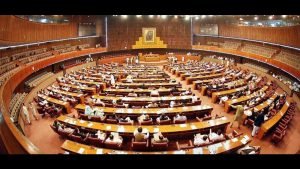Constitutional Law
Cepal & Co. constitutional lawyers best assist their clients in constitutional litigation in Pakistan. Constitution is not an ordinary statute made in ordinary legal procedure. It is the creation of a Constitutional Act and therefore the sanctity of a Constitution is much higher than any statute made by the legislature. A Statute is an act to fulfill a particular social, political or economic need and so its efficacy of importance does not endure so long. But a Constitution is made to endure with the avowed purpose to fulfill the aspiration of the people who made it. It is by the people, for the people and a documentation of the cherished good of the people. Constitutions are not conceived and acted in vacuum, and as an instrument of Government. It is always intended the condition and as it is itself conditioned by the circumstance and environment of the community whose activities seek it to regulate. It is never internal and differs from other laws only in respect of general national purpose, it has in view. Constitution, written – unwritten has a philosophy of its own: it is the means of ordering the life of people. This way we should have good understanding of our constitution.
One reason why the law of constitution is imperfectly understood is that we rarely put it side by side with the constitutional provisions of other countries. In other words a comparative study of the constitution is absolutely necessary for its perfect understanding. Apart from it we should also study to find out that what was in the mind of constitution makers.
Constitutional interpretations by Courts have played an important role in settling political problems as well as other issues involving individuals and parties. These interpretations have also restricted or expanded the scope of action of different functionaries of the Government and enabled individuals and groups to enjoy constitutional and legal protection. The Supreme Court of America, in a case held that an unconstitutional act is not a law, it confers no rights, it imposes no duties, it creates no offence and this act is inoperative as it has never been passed. The Superior Courts in Pakistan also support this viewpoint. In all matters, aggrieved person can avail the statutory remedy of Appeal or Revision, which is not some times adequate, effective, efficacious, convenient, beneficiary and expeditious. In such situations the aggrieved party can avail the extra ordinary remedy by invoking constitutional jurisdiction of the High Court or Supreme Court, which is obviously speedy and effective remedy and foster the justice. These conditions occasionally overlap or conflict with each other.

